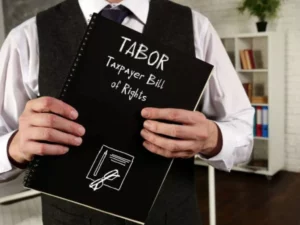Confused about drop shipping taxes and who has to pay them? While the retail mechanism is easy to comprehend, many entrepreneurs find mandatory fees too complex. In reality, it all comes down to systematizing data and learning the principles of each tax. This blog will discuss dues’ main characteristics and what side should pay and withhold them.
Main aspects of drop shipping
Drop shipping is a category of online commerce that allows people in business to sell goods even if they do not own or store them in their warehouse facilities.
Instead, if a shopper wants to receive merchandise, the enterprise buys the shipment from the wholesaler or the producer. The third participant then collects the required products and sends them to the purchaser; it is called a drop shipper.
The popularity of this commercial model is due to the fact it allows people to start their company with minimal expenses since there is no need to purchase a full range of products in advance. Another advantage of this solution is the reduction of overhead costs, e.g., no need to spend money on renting warehouses.
However, when launching a business, difficulties can arise; most often, they are related to taxation. The process involves two purchases of one commodity: the consumer places an order with the retailer, who, in turn, with the supplier. Given such a complex scheme, it is not always clear in what situations sales dues are withheld and what market players should pay them. Please view our guide or interact with financial professionals to comprehend the tax structure.
The most common drop shipping and sales taxes
Drop shipping charges differ by the method of gathering. There are fees that companies must get from buyers and pass on to the competent authorities. Other mandatory payments organizations directly transfer to the IRS. Consider the most popular types of payments and who must collect and send them to authorized bodies.
Revenue tax
It is the capital firms pay out of their annual income; the payment amount depends on the profit size. If an enterprise ends the year with a loss, it does not have to pay this fee. Company owners pay this tax to the regional government; if you are in the USA, the funds will be transferred to the American budget, regardless of where your purchaser lives.
Sales tax
Sales tax, VAT, and GST are the most common classes of consumption fees that apply to purchasing commodities and services. Such a charge may be presented as a flat rate applied to each transaction or as a percentage of the entire cost; each state selects an optimal option. The final consumer pays such a fee in any situation since he feels all the profits of utilizing the product. With drop shipping, the fundamental difficulty is what part should withhold taxes from the consumer: the trader or the supplier. Let’s look at the most common schemes:
- When the trader and delivery point are resided in one state, the salesman must withhold sales dues, regardless of the supplier’s county.
- When the destination is outside the place where the trader and producer operate, the consumer is responsible for paying all taxes or processing benefits.
- The drop shipper must pay the required fees if the wholesale dealer and delivering place are in one region and the trader is in another location. Still, because these products will be resale, the distributor must show evidence of operation to exempt the organization from paying additional taxes. However, in this context, you should study some standards and exceptions to avoid financial sanctions.
As we can see, most of the difficulties arise in the latter case, when the distributor must present exemption documents (also called resale certificates). The directives for issuing and using such documents depend on your location; some papers are only suitable for one state, and others apply to several regions.
The drop shipping source taxes
Companies also pay source fees to suppliers when purchasing goods as a percentage of the entire sum; on average, this tax is 10%.
If the shipment’s initial price is $20 and the fee is set at 10%, you will pay $22. Don’t forget to add source dues in your revenue margin computing to ensure your organization runs efficiently.
Drop shipping customs duties
Customer duty is mandatory if the shipment crosses the country’s borders. Sometimes the drop shipper takes on the responsibility of paying these dues to the courier after the order arrives at the destination, but more often than not, these costs fall on the shoulders of the clients. Therefore, it is critical to warn consumers of such additional fees.
Some words about the resale certificate
It is a paper that lets an online organization buy resale commodities without withholding sales fees on drop shipping. You may also demonstrate this documentation to the vendor so that he knows you are released from paying sales fees.
In simple terms, if John The Trader shows a Debbie Drop Shipper resale certificate, then she understands that she does not need to withhold sales tax from him, even if on his behalf, drop shipping to a shopper in the place where she has a sales fee nexus, that is, a physical relation with the region through living or opening a firm there.
There are some points to remember when we speak about resale certificates. Such documents are legitimate throughout the USA, although they may only be employed to receive merchandises you decide to resell or employ as a design element for resale.
Be prepared that the counterparty may reject to accept such papers. Since the trader is responsible for non-payment of sales charges if the certificate is counterfeit, many counterparties restrict interacting with them. Some vendors also don’t want to deal with resale documents unless they plan to motivate traders to purchase their products.
Conclusion
Drop shipping is an excellent development variant for new companies and companies with a long history of planning to develop their activities to generate additional income. However, finding a trustworthy supplier takes time and a willingness to reach a consensus.
With the launch of drop shipping, tax accounting requests will become more complex; however, robust bookkeeping and ecommerce applications will help you comply with each state’s directives. To get more data on mandatory sales fees, you can consult a tax advisor or professional accountant.
As states become more aggressive with audits, your vendors risk getting into trouble if they are found during the audit not to have an actual resale document from your organization in the place where they have nexus and where they did drop shipping commodities for your organization’s clients. Experts will assist you in receiving all the financial paperwork properly to avoid trouble.


















